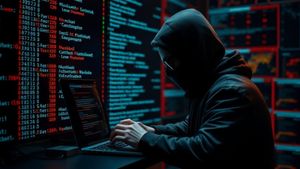South Korea finds itself engulfed in political turmoil as the suspended President Yoon Suk Yeol faces serious allegations of rebellion linked to his recent imposition of martial law. The unprecedented declaration of martial law on December 3, 2024, was made amid rising tensions with opposition parties over budget disputes, igniting a crisis within the government and raising questions about the limits of presidential power.
The gravity of the situation was underscored when Yoon was arrested on January 15, 2025, becoming the first sitting South Korean president to be taken under custody. The South Korean prosecutors are accusing Yoon of orchestraying rebellion, alleging he conspired with his then-Defense Minister Kim Yong-hyun and others to incite uprising through the unlawful imposition of martial law. According to the law, such actions could lead to severe penalties, including life imprisonment or even the death penalty if he is convicted.
By declaring martial law for only six hours, Yoon's administration destabilized the country’s political framework. The declaration prompted swift action from the National Assembly, which voted for Yoon's impeachment on December 14, 2024. The opposition has framed Yoon’s actions as not only reckless but also as threatening the democratic foundations of South Korea. His governance style and the attempts to suppress dissent have generated widespread criticism from multiple quarters.
Yoon’s response to the chaos, casting his actions as necessary and justified to combat what he termed "anti-state forces" within the opposition, has fueled the debate about executive authority during crises. He expressed these sentiments vehemently during press conferences, emphasizing the threat perceived from his political opponents. Following his arrest, Yoon’s legal team contended, "The declaration of martial law was some sort of desperate appeal to the public against the national crisis caused by the out-of-control opposition."
Reactions from the opposition have been equally vocal. Han Min Soo, spokesperson for the Democratic Party, declared, "The punishment of the leader of the uprising begins now." His remarks reflect the opposition's intent to leverage the situation to solidify their position among voters who may be swayed by the notion of restoring order and accountability to government affairs.
The legal proceedings may stretch for months as the Constitutional Court of South Korea deliberates on whether Yoon's actions warrant formal removal. If the court validates the impeachment motion, new presidential elections could be mandated within 60 days, which would reshape the political terrain significantly. The outcome not only has ramifications for Yoon but is poised to redefine the political guardrails under which the South Korean presidency operates.
While the prosecution appeals for justice, Yoon's defense team is fighting relentlessly to clear his name, arguing against the legality of the martial law declaration and the associated charges. A balance is sought between maintaining constitutional integrity and addressing public safety during politically charged crises.
The narrative around Yoon's leadership will be closely observed both domestically and internationally, as it could signal future approaches to authority and governance across the globe. The entire matter lays bare the tensions between executive power, democracy, and civil rights at a time when many nations are grappling with similar dilemmas.
The decision of the Constitutional Court could serve as more than just the fate of one president; it could be pivotal for the democratic framework and the relationship between the government and its citizens. With calls for accountability ringing through the chambers of South Korean politics, the coming weeks will reveal whether Yoon Suk Yeol's presidency will mark the dawn of significant political change, or whether it will serve as a cautionary tale of authority misused.



